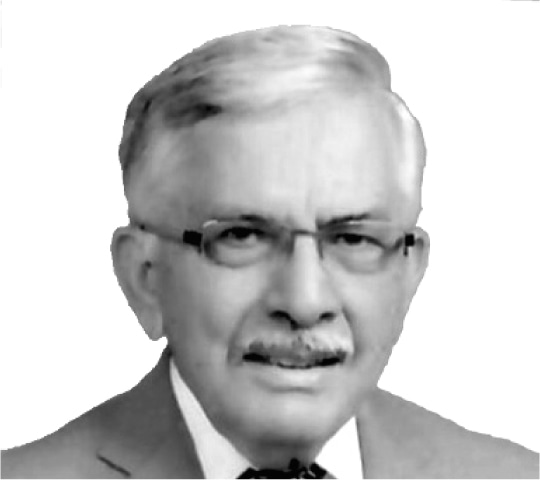We asked business leaders the following questions:
Q1. Indicators suggest that Pakistan is on a growth trajectory. In your opinion what are some factors that the country needs to focus on to maintain this momentum?
Q2. Similarly, what are major hurdles to growth that policymakers need to keep in mind while making decisions?

A. Razak Diwan CEO of Novatex Ltd
A1.
• Steady supply of electricity and improvement in water supply to industries.
• Business and trade policy for a period of three to five years instead of every year.
• Reducing cost of doing business and banning strikes and processions.
A2.
Addressing the law and order situation is a major hurdle.

Byram D. Avari Chairman of Avari International Hotels
A1.
• Political stability is a must along with an unchanging continuation of policies.
• For example, Italy has had 19 governments but its policies remained unchanged which led to the country’s growth. Pakistan should do the same.
A2.
• Firstly, terrorism. Terrorism deters growth.
• Secondly, the international perception of Pakistan needs to be addressed.
• But most importantly, under no circumstances should the CPEC allowed to be derailed as it is a great game-changer.

Muhammad Ali Tabba CEO of Lucky Cement
A1.
• Growth is not sustainable as it is driven by consumption because of excessive imports and a very poor investment and savings level. Since manufacturing has not increased, growth is completely import-driven.
• Import substitution needs to be looked into immediately with industries being set up in areas where import is currently the greatest. The government also needs to identify which sectors have the most potential for the purpose.
• Furthermore, the country needs the same export policy across the board rather than having different policies for different sectors.
Currently, the textile sector has one policy while the cement sector has a separate. A consolidated policy will ensure greater exports and address the current fragmented situation.
A2.
• Policymakers need to immediately ensure that the exchange rate tool is fully deployed.
• The input cost must also be significantly reduced.
• Lastly, it is of the utmost importance that there be tax rationalisation as the current tax structure is completely skewed.
• Manufacturing and corporations are being unfairly burdened. For example, manufacturing contributes 14pc to the GDP while tax revenue from the sector is 58pc, whereas agriculture contributes 20pc to the GDP while tax revenue from that is minus one per cent.

Shaukat Tarin Former finance minister
A1.
• Pakistan will need to increase its investment-to-GDP ratio by ensuring consistency of major economic policies to attract local and foreign investments as well as incentivising them in critical sectors.
• We need to drastically improve on tax-to-GDP so that the government has resources to invest in health, education and infrastructure.
• Improve the performance of public-sector enterprises through an autonomous holding company structure.
• Restructure and improve manufacturing and agriculture sectors through policy and incentives to value addition.
• Work to increase housing finance from 0.25pc of GDP to 2.5pc in the next five years.
A2.
• A low tax base. Presently, the tax-to-GDP is around 10.5pc to 11pc. We must raise it to 20pc in the next seven to 10 years.
• Improve our exports by increasing the value-added content in our goods as well as broadening the base.
• Without investing significantly more into education and health, we will not be able to improve the quality of our human resources.
• Low banking footprint to support the GDP from 33pc to 50pc in the next seven to 10 years.
• Furthermore, remove disparity in distribution of banking resources between regions and sectors.
Published in Dawn, The Business and Finance Weekly, August 14th, 2017














































Dear visitor, the comments section is undergoing an overhaul and will return soon.